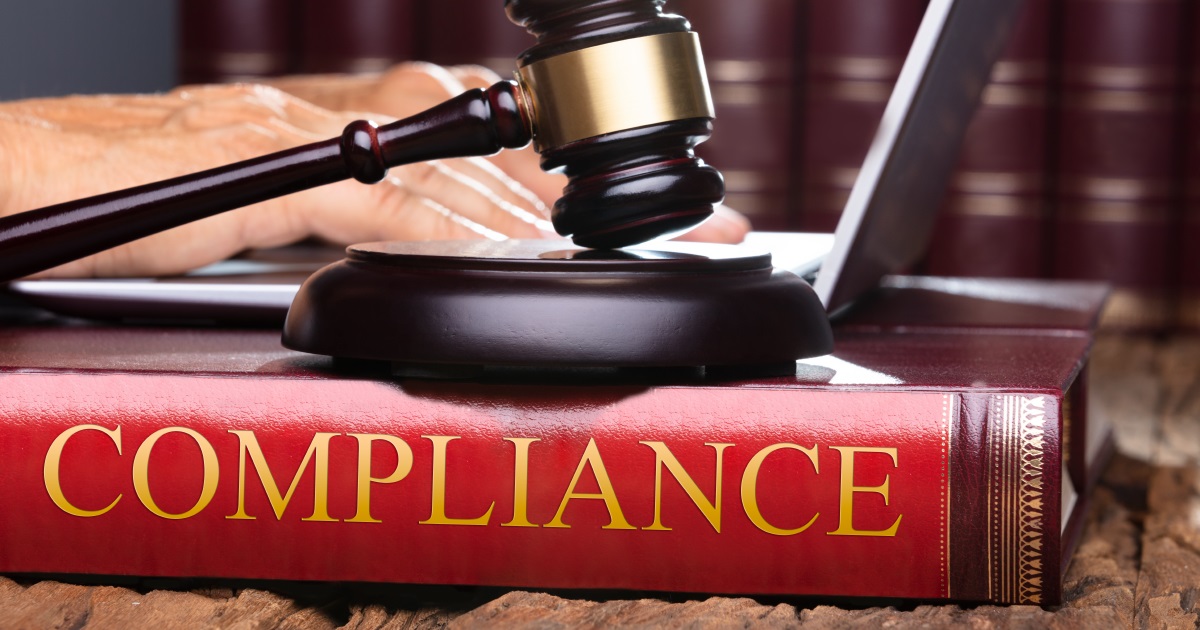It's not just about legal compliance! Business Ethics and Compliance

Now that compliance is considered important in management activities, many companies are promoting compliance measures as one of their issues. However, many companies are aware that "compliance with laws and regulations is what compliance is all about," and few companies may understand the true nature of compliance.
In this article, we will discuss corporate compliance in detail, touching on corporate ethics, which is important to know in order to understand compliance.
If you are in charge of human resources at a company, please refer to this page.
Contents
- 02Examples of non-compliance
- Failure to manage working hours
- Power harassment and sexual harassment
- Inadequacies in information security
- accounting fraud
- improper receipt of payments
- Misrepresentation of goods and services
- Inadequate sanitation
- 03Ethics required for corporate compliance
- Tier 1: Legal Compliance
- Tier 2: Compliance with internal rules
- Tier 3: Ethical Conduct
- 04Why companies need compliance
- To fulfill our social responsibility
- Because of the risk of administrative sanctions
- Because the corporate image will be downgraded.
What is "compliance" in a company?

Compliance in a company is aimed at earning the trust of society and maintaining corporate value.
Of course, it is not wrong to view compliance with the laws set forth by the government, but in fact, there is more to it than that. Corporate compliance also includes having social good sense and acting in accordance with corporate ethics.
Back to ContentsExamples of non-compliance

Compliance has been attracting attention in Japan since the 1990s. The term "compliance" became widespread, triggered by the many corporate scandals that occurred at that time.
Let's take a closer look at what exactly is meant by noncompliance, in turn.
Failure to manage working hours
One of the most severely enforced compliance violations is inadequate management of working hours due to overtime work and nonpayment of overtime wages (violation of the Labor Contract Law). Violations of these laws will result in a recommendation for corrective action in an investigation by the Labor Standards Inspection Office.
Note that companies that have not signed a 36 (sub-loc.) agreement are considered in violation of the law if they force employees to work more than 8 hours per day or 40 hours per week.
Power harassment and sexual harassment
Various types of harassment, such as "power harassment" and "sexual harassment," can also constitute noncompliance.
It is important to note that harassment is not an individual issue, but a company responsibility, and can be pursued for breach of the duty of care for safety.
There is now also a wide variety of types of harassment, and terms such as "moral harassment" and "maternity harassment" have emerged.
All workers must have a better understanding of harassment and take care in their work to prevent problems from occurring.
Inadequacies in information security
There are also compliance violations due to inadequate information security. Typical examples are leakage of personal information due to unauthorized removal by employees or hacking damage.
Nowadays, with the spread of remote work, there is a fear that people are becoming less aware of how personal information is handled. Companies must take thorough information security measures to prevent information leaks.
accounting fraud
The most common examples of past noncompliance are accounting irregularities, such as fictitious recording of sales and expenses and falsification of accounting documents.
The circumstances leading to noncompliance vary from company to company, such as covering up misappropriation of funds to meet sales targets or padding expenses to report lower profits for tax evasion purposes.
Both of these violations undermine the credibility of the company and can be severely punished as misstatements in securities reports and fraud.
improper receipt of payments
Fraudulent receipt is the act of improperly receiving government grants or subsidies.
In order to receive subsidies and grants, it is necessary to fulfill the conditions stipulated by each system, but there have been cases of fraudulent receipt of subsidies and grants by filing false information. If this fraud is brought to light, the amount paid may be claimed back and additional penalties may be imposed.
Misrepresentation of goods and services
Misrepresentation of products and services (violation of the Act against Unjustifiable Premiums and Misleading Representations) is the misrepresentation of services or products to consumers through exaggerated or misleading advertising.
Specifically, they market their products with unsubstantiated data, or they tout limited quantities but actually sell more than that.
In addition, if you tell people without evidence that the product will "surely help them lose weight" or "boost their immunity," you may be in violation of the Pharmaceutical Affairs Law.
Inadequate sanitation
Inadequate hygiene management is a compliance violation that is particularly problematic in restaurants. There have been many cases in the past of mass food poisoning caused by companies that prioritized profit margins and turnover rates without taking the necessary sanitary measures for food products.
It should also be noted that any misrepresentation of place of origin or expiration date will be severely punished.
Back to ContentsEthics required for corporate compliance

There are three levels of corporate compliance, not only legal compliance, but also corporate ethics that must be followed in the course of business activities.
Tier 1: Legal Compliance
The first level of ethics is the concept of acting in compliance with laws and regulations. Violations of labor contract laws and accounting irregularities, such as those described in this article, are precisely the kind of behavior that violates the first level of ethics.
Many companies are currently aware that compliance = adherence to the first level of ethics.
Tier 2: Compliance with internal rules
The second level of ethics is the concept of adhering to internal company rules other than laws and regulations. The rules vary from company to company, but may include "no use of equipment for other purposes" or "no taking back of personal information.
Although violations are not punishable by law, they are considered mandatory for all employees of a company.
Tier 3: Ethical Conduct
The third level is the idea of ethical behavior, which is neither legal nor statutory. It means to act rightly as a human being and how we should act rightly as people working for a company.
Compliance, which a company must fulfill, is a term that refers to the scope of compliance up to this third level.
It is very important to check once again whether your company has been able to penetrate to which level of employees.
Back to ContentsWhy companies need compliance

So why do companies need to be in compliance? Let's look at the reasons in turn.
To fulfill our social responsibility
In order to run a business, a company must fulfill its CSR (Corporate Social Responsibility), or so-called social responsibility.
CSR is a response to the demands of society, and the term is often used in a broader sense than compliance. In other words, compliance is included in the process of promoting CSR.
It is important to be a company that does not only prioritize its own profits, but also builds better relationships with society through CSR.
By doing so, the company will be evaluated as "a company with a thorough compliance system.
Because of the risk of administrative sanctions
Noncompliance can result in a suspension of operations or a business improvement order.
Depending on the severity of the violation, there is a possibility of arrest, and it is not impossible to say that there will be no cases of fines or imprisonment. If you are subject to administrative penalties or punishment, not only will you not be able to conduct your business, but your company's credibility will be severely damaged.
For this reason, it is necessary for each and every employee to raise their awareness of compliance on a daily basis.
Because the corporate image will be downgraded.
Newspaper and news coverage of noncompliance can seriously damage a company's image.
Business partners with whom you have had a good relationship will leave, and for consumers, this may lead to non-buying and reduced purchases.
And in many cases, if the company does not take appropriate action after a noncompliance occurs, it may be forced to downsize its business or go bankrupt.
Back to ContentsHow to Prevent Noncompliance

To avoid noncompliance, companies must take thorough preventive measures. Next, let's look at specific prevention methods.
Build a Compliance Response Team
Establish a compliance task force within your company. In creating the team, it is important to make sure that the team is aware of the deeper aspects of corporate ethics, rather than just "obeying the law.
And most importantly, it is the behavior and attitude necessary to adhere to social codes of conduct, which is precisely the understanding up to the third level of ethics introduced in this article.
In addition to the countermeasure team, it is also important to establish a consultation service where employees can feel free to discuss compliance violations within the company.
Implement a compliance program
Implementing a compliance program is another effective preventive measure. A compliance program is a framework or plan that a company creates to ensure compliance with laws and regulations and ethical business activities.
Specifically, this would include establishing a compliance committee and conducting deliberations on plans and cases.
Then, once the program is implemented, it must be made available for information sharing within the company and thoroughly disseminated.
Whistleblower Care
Whistleblowers must be protected if compliance is to be safe and preventable. Whistleblowers are not a hindrance to a company, but a resource that can lead it in a better direction.
In a workplace with a system where individuals are identified and disadvantaged by whistleblowing, no one will show interest when something goes wrong. The Whistleblower Protection Act was created to ensure that employees who whistleblow are not disadvantaged.
Companies should make sure to share the Whistleblower Protection Act throughout the company and be aware of the importance of respect and care for whistleblowers.
Back to ContentsSummary
In this issue, we have explained corporate ethics and compliance. Compliance is often used in place of the term "legal compliance," but it also includes the meaning of adherence to ethics and morals as well as the law.
Let's make time to deepen the proper understanding of compliance within the company once to see what kind of behavior and attitude is desirable as a human being who should be involved in society.
Please use the compliance training contents of "learningBOX ON" to inform your employees about compliance within your company.
learningBOX is a cloud-based elearning platform
and you can easily build training courses online.
Created content will be delivered to employees and you can track their learning progress.
There will be something you can do to improve your work environment.
▼You may also like:
Back to Contents


-
Discover rich featuresService Guide
-
Feel free to contact usGet in Touch
-
Try our Free PlanTry Free Plan










